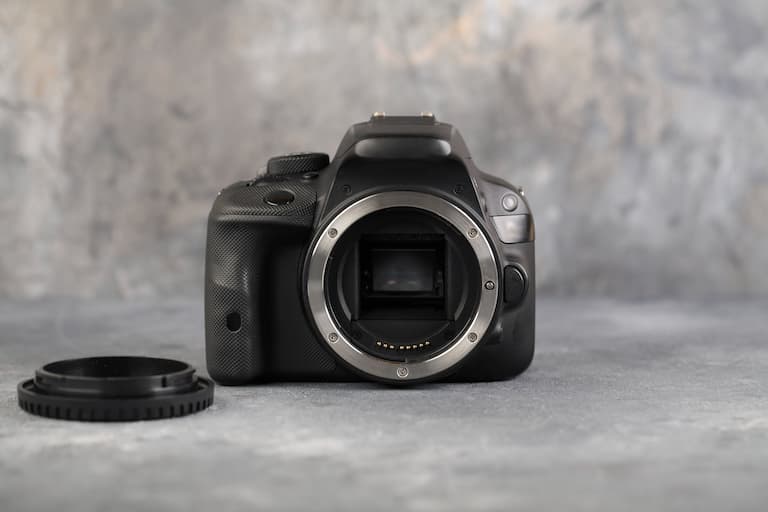Choosing which lens you should shoot with can be half the fun of photography, but it can also make it even more confusing if you’re a beginner. While you might think that mounting a lens on your camera will automatically make your photos better, that might not always be true, especially when you’re considering mounting an APS-C lens on a full-frame lens camera.
You can use APS-C lenses on a full frame camera as long as they are compatible. However, both of these lenses are ideal for different types of photography, with APS-C being best for everyday photography and full-frame typically used for professional photos.
If you’re debating using an APS-C lens on a full-frame camera or vice versa, you’ve come to the right place. You’ll know everything you need to decide which lens you should stick with for your photography by the end of this article.
Table of Contents
What Are APS-C Lenses?
APS-C lenses are camera lenses that fit an APS-C camera, which has a different type of sensor compared to other cameras. APS means Advanced Photo System, with C standing for “cropped,” which is the type of system. So, it’s not a full-frame lens.
APS-C sensors crop an image by narrowing the scope that your camera “sees,” producing a smaller picture. These sensors are small in size and are often pre-installed in cameras meant for everyday photography because you can use them in lightweight cameras.
Since these sensors are typical on run-of-the-mill casual cameras, their final images aren’t as high-quality as those on more serious cameras. While your photos will likely still be beautiful and can still look amazing, there are fewer pixels in the image, making the details less crisp overall.
The limitations of an APS-C are all due to the size of your sensor. Since APS-C sensors are designed to crop images and are physically smaller, they cannot process as much light, which means photos will be lower-quality, especially in low-light areas.
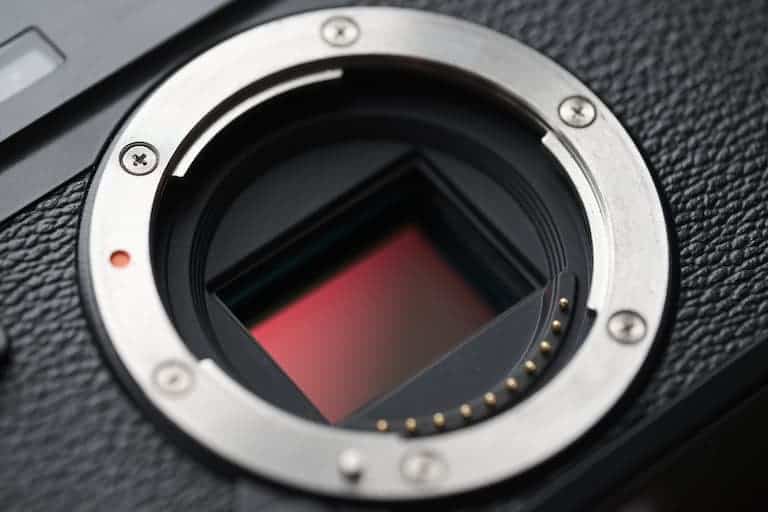
What Is a Full Frame Camera?
A full frame camera has a larger sensor that allows the camera to “see” more of the area where you’re taking pictures. Full frame lenses fit this type of camera. That means you can take a wider-scope picture without sacrificing the details of your image by moving further away from it.
Your image will also be of higher quality because of the sensor’s size. A large sensor can process more light, which means your camera can preserve more detail. Your photo will also have more pixels, making those details as crisp as they are in real life.
What Happens When You Use APS-C Lenses on Full Frame?
While you can use an APS-C lens on a full frame camera in some cases, it’ll still affect your photography because it isn’t the intended lens.
When you use APS-C lenses on full frame cameras, the lens might not fit. Your lens will block much of the camera’s sensor when they work, cropping your image. Since you’re cutting off some of the camera’s sensors, it can also lead to a strange border around the edge of your image.
Your camera’s sensor and lens should be compatible to get the best pictures possible. So, ideally, you should only use an APS-C lens on cameras with an APS-C sensor, and the same should go for full-frame sensors and lenses. Many camera brands design their camera bodies to only work with the lenses specifically designed to work with their sensors.
Using an APS-C lens on a full-frame camera might be worse than using a full-frame lens on an APS-C sensor camera. Since the APS-C sensor is smaller, it’s less likely that your lens will block any part of it, which means you’ll still be able to use it fully.
On the other hand, a blocked full-frame sensor will change the way you can take photos because the edges of the sensor won’t be used, causing the edges of your photos to look blurry.
For people who enjoy experimenting with photography, this allows you to take unique photos that’d be difficult to emulate if you use a compatible lens-sensor combination.
However, it’s likely to lower the quality of more traditional photos and lead to disappointing results if you want a lifelike, clear, sharp image.
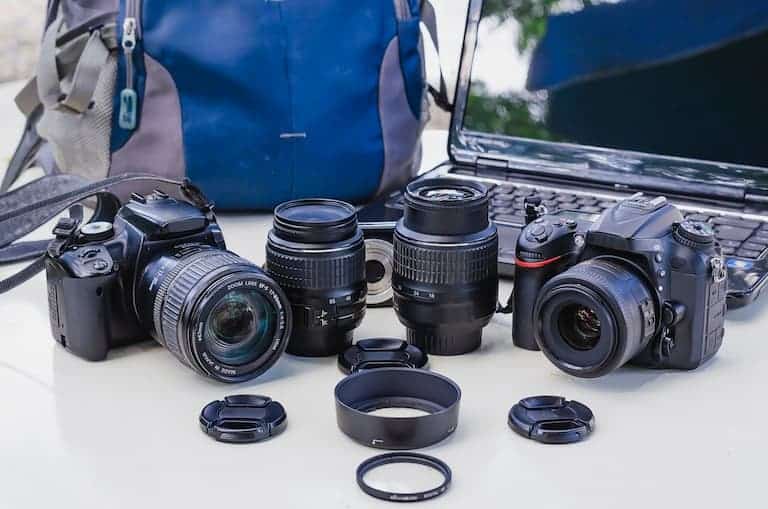
Can All Cameras Use Both APS-C and Full-Frame Lenses?
Not all cameras use both APS-C and full-frame lenses. However, some cameras do. However, Nikon and Sony produce full frame camera bodies that still work with APS-C lenses.
It’s essentially the same as any other technological incompatibilities when a full-frame camera doesn’t work with an APS-C camera. For example, different laptops might not be able to use each other’s charging cords because they only pair with parts made for them specifically.
So, don’t force your camera to work with an incompatible lens, or you’ll risk breaking both your lens and your camera. On the other hand, if your full frame camera will operate when you mount an APS-C lens (or vice versa), it’s essential to know that your camera might not work at its maximum potential.
It might struggle to implement all of its settings if its sensor can’t function thoroughly. Your camera might have a more difficult time adjusting to different light settings, or it might have a more challenging time focusing on fine details because it’ll lack the ideal exposure.
When To Use an APS-C Camera and Lens
Though APS-C sensors and lenses have a reputation as less professional because they’re standard in more basic cameras, they still have their place in the photography world. Some professionals still routinely use these types of cameras.
However, we’ll address the elephant in the room before discussing the technical reasons you might want to use an APS-C lens over a full frame one. If you’re looking for a lens that’s more of a budget-friendly option, then the APS-C is the better choice.
This camera system is considered less professional and priced to be more affordable for people who look at photography as a hobby more than a job. So, if you’re on a tight budget, APS-C is the way to go.
However, its lower price tag isn’t the only reason why you might want to choose an APS-C lens for your pictures.
These cameras and lenses are also much lighter and smaller than many other cameras.
APS-C cameras have a smaller sensor, so there’s less technology needed to make them work.
Since these cameras are also marketed at the average consumer more than professional photographers, there are often fewer settings on these cameras, which adds to less complex engineering in their creation. That means the camera can be much more lightweight and smaller than its full-frame counterparts.
Since cameras with APS-C sensors can be smaller and lighter, their lenses can also be smaller because they don’t have to accommodate a large sensor.
The lightweight design makes these cameras and lenses perfect for on-the-go photography, even among professionals. They’re easy to carry and maneuver, so if you need to get your camera out fast to start shooting, you can do that with an APS-C, especially if you’re shooting in good lighting.
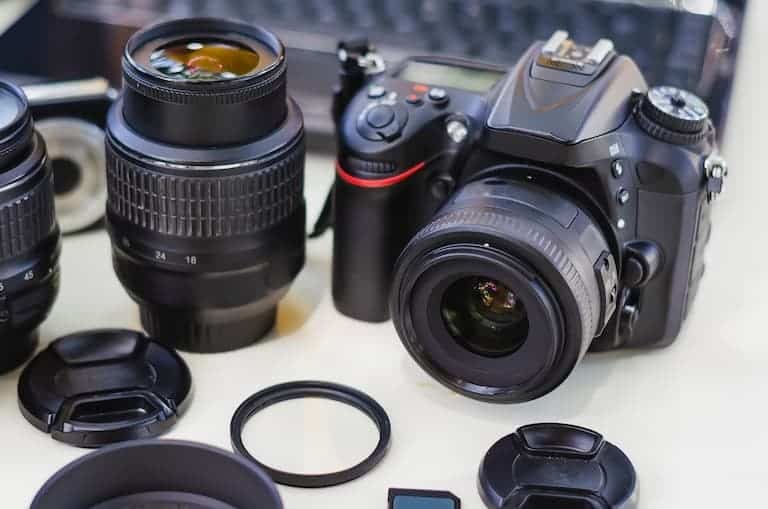
When To Use a Full-Frame Camera and Lens
While APS-C cameras and lenses have their merits, there are plenty of reasons why you might want to opt for a full frame camera and lens instead. Full frame lenses are more likely to be functional if used on cameras with smaller sensors than the other way around. Since full-frame sensors are much larger, their lenses are large enough to accommodate them.
So, if you use a full-frame lens on a camera body with a smaller sensor, like an ASP-C, you’ll still be able to get full use of your camera sensor because it won’t be blocked. That makes full-frame lenses much more adaptable than some of their counterparts. This versatility could make them even more worth their elevated price to people with multiple camera types.
It’s not just their compatibility that might make full lens cameras a better choice in some shooting situations. If you’re shooting low-light, or any light that isn’t optimal, then full frame cameras and lenses will be a better option.
Full frame cameras have a large sensor to detect the light sources around you, allowing you to get an even focus and exposure as you shoot. A smaller sensor won’t be able to pick up as much light as a larger one, so it requires brighter and better overall lighting.
As long as you’re not shooting in pitch-black darkness, a full-frame sensor will pick up whatever minimal lighting is present, giving your photos the best chance of coming out clear and crisp. Full frame cameras and lenses are often better at capturing details in images, producing high-quality pictures with crisp, precise details.
While it’s not impossible to achieve this with an APS-C camera and lens, you’ll likely have to play around with more of your camera’s settings to get a better photo. Your full-frame pictures will also have a more significant number of pixels, which will make them higher quality and easier to blow up without sacrificing quality.
A full frame camera will also allow you to capture more depth in your photos. When using an APS-C camera, your entire image will look like it’s taking place on one level, even if there are items in the foreground and background. On the other hand, a full-frame camera will allow you to capture the different placement depths of what you’re capturing in your photo, called a bokeh effect.
So, to simplify, an APS-C-shot photo looks more like a 2D image, while full-frame cameras and lenses give you a realistic 3D effect.
Unfortunately, you can’t achieve this effect as much with any APS-C equipment because this system just isn’t designed for that sort of photography.
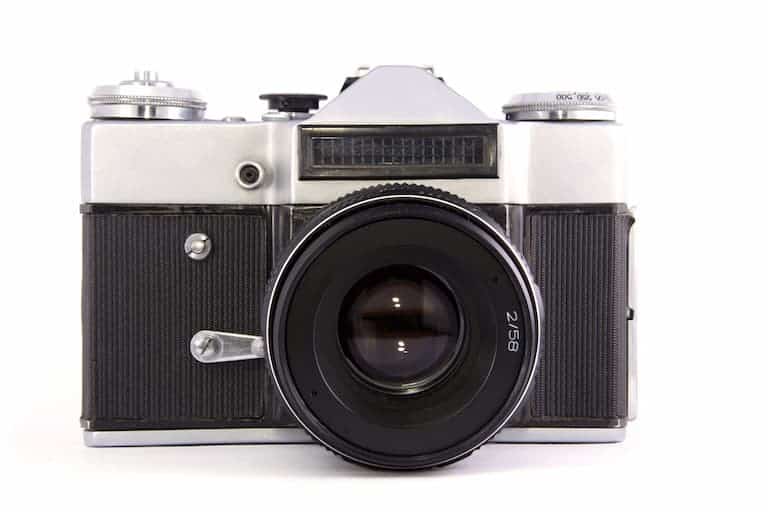
Do Professionals Use APS-C Lenses?
While full frame cameras and lenses are certainly more common among professional photographers, that doesn’t mean that they disregard APS-C equipment entirely. New photographers likely appreciate the lower cost of these cameras and lenses because they might not have the budget for the more expensive options early in their careers.
However, some pros still keep an APS-C camera and lens in their repertoire for several reasons.
Professionals use APS-C lenses and cameras depending on the type of photography they want to do. If they shoot in good lighting, enjoy being more manual with their camera settings, and want to experiment, APS-C products allow them to do that.
Photographers that like a challenge might also like using APS-C lenses and cameras because they need to do more work and make more adjustments to get the shots they want, considering the lack of features these cameras have.
Using an APS-C lens on a full frame camera can also allow for experimental shots, as we’ve already mentioned. While it might not be ideal to use APS-C lenses with a full frame camera, and you might risk damaging your equipment, using them together allows you to play around with only part of your camera sensor.
If they know they’ll be shooting in good lighting, APS-C cameras and lenses might also be a professional’s first choice. These smaller cameras allow the pros to bring a lighter, easier-to-move, and easier-to-handle camera without completely sacrificing their images’ quality.
A final reason a professional photographer might choose to use an APS-C camera or lens is the type of photography they’re going to shoot. If they are not concerned with capturing wider shots and softer details, then an APS-C will be the more straightforward system.
In Conclusion
APS-C and full frame lenses and cameras both have their merits in photography. Both of these camera systems have specific lenses that they work best with. However, in some cases, you might be able to use an APS-C lens on a full frame camera.
If you choose to mix and match your APS=C with a full-frame, be careful not to damage your camera or lens, and be aware that you won’t get full use of your camera’s sensor.

